
When it comes to skin types, it seems that for the most part, we always want that skin type that we don’t have i.e. oily-skinned teens pile on products to dry their skin to prevent breakouts, while mature women slather on cold creams and moisturizers to make their skin resemble a teenager’s. People have the opportunity to protect their skin from the harsh rays of the sun by using adequate sunscreen, yet often leave it unprotected to get a tan, thus creating skin that resembles shoe leather and risking skin cancer down the road.
If there were not a wide variety of skin types, the grocery stores and cosmetic counters would not be burgeoned with creams that promise rejuvenation, renewal and skin as soft and smooth as a baby’s bottom.
There is a fix for dry skin, if it is age that you are battling, and it comes in the form of spa treatments which provide the humidity that skin craves. These treatments open the pores to permit moisturizing products to work their magic.

Summer is nearly here and most families will be headed out doors to begin all sorts of outdoor activities. Summer can be one of the roughest times of the year on the skin and steps should be taken to protect its health. Exposure to the sun can lead to skin damage as well as skin cancer but there are also other problems that can arise. No matter what type of outdoor activity you are engaged in, even lying by the pool, you are likely to sweat more. This can mean that the skin has more dirt, oils and even environmental chemicals will be trapped in your pores. This is certainly the time of year when we need to be much more conscious of our skin health and take measures to protect it from damage. Here are a few tips to help maintain skin health this summer.
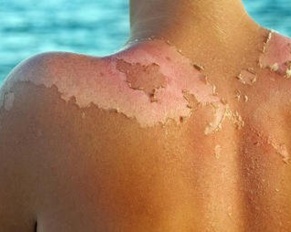
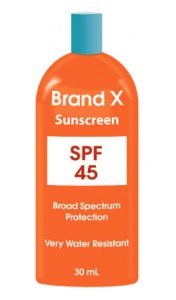
The sun is instrumental in our bodies ability to create vitamin D. Skincare experts suggest that we spend about 15 minutes a day in the sun but overexposure or unprotected exposure can lead to unpleasant skin conditions that include sunburn, unsightly wrinkles, skin degeneration or skin cancer. In order to protect our skin it is highly recommended that sun block be used, especially if an individual is aware that they will be exposed to the sun’s harmful rays for a long period of time. But like choosing many dermatology products, choosing a sun block can be confusing with all the varieties that are available. Sun blocks are categorized by various features such as ingredients, resistance to water, sun protection factor (SPF) and whether or not they block UVB or UVA rays. Some are also categorized by the age group they are specified for such as those which should be used for children, teens or adults. In order to maintain proper skin health, it is important to select the right sun block. Here are a few things to think about in making a selection.

New Jersey residents excitedly embrace the summertime months. While the weather is enjoyable, it can also wreak havoc on the skin. Summertime will require that special attention be given to the skin in order to keep it healthy and in good shape. The dermatologist can suggest many ways to protect the skin during the harsh summer months. Here are just a few tips for how to care for the skin in summer.
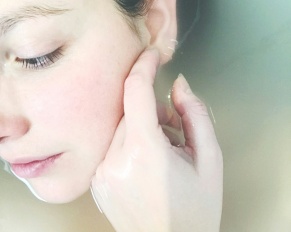
Sunscreen is one of the least expensive types of dermatology products but it plays a very important role in the health of your skin. Sunscreens work by reflecting, scattering or absorbing UV rays that can damage the skin. There are many different types of sunscreens available which contain a wide variety of ingredients. Choosing the right sunscreen will depend upon an individual’s lifestyle and the types of activities that they will participate in outdoors. No matter which type is chosen it is essential that it provides protection from both UVA and UVB rays.
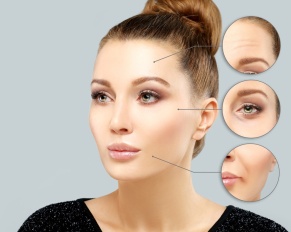
Laser skin treatments are not performed just for cosmetic purposes. Some treatments are performed to rectify a skin condition such as acne or excessive facial hair. Corrective practices are also performed following skin grafting procedures to help reduce or eliminate the prominence of scar showing on the face. In a few cases, these skin treatments are used to correct scarring left from sports injuries, vehicle accident injuries and personal injury attacks. Regardless of the reason, there are treatments that are recommended by some cosmetic surgeons to help those with complexes regarding scarring.

There are some basic skin care routines that every woman should exercise regularly to keep her skin looking young and beautiful. Every woman has a different skin type so there are some things that you may need to contact a doctor in Livingston about, but using these simple daily tips will keep your skin looking refreshed.
Wash Your Face
The first and most basic of tips is to keep your face clean. You can do this by washing your face in both the morning and at night. It is important to wash your face in the morning because you can pick up lots of dander and dead skin off of your pillow as well as dust and dirt. It is also important to wash your face at night to rid your skin off all the toxins that accumulated on your skin throughout the course of your day. During the day, it is also important to touch your face less and to keep your hands clean for when you do touch your face. When you do touch your face, be sure to not scratch and pick at your skin which could lead to scarring on your face.
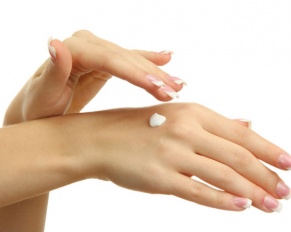
As the weather goes through changes, so does the human body. When temperatures drop, many people report experiencing an unexpected and unpleasant change in their skin. It is common to develop itchy or dry skin during the frigid winter months. The hallmark symptoms of this condition include chapped lips, cracked hands, and tightness. While dry skin can be uncomfortable and bothersome, there are numerous steps to take that can alleviate and prevent uncomfortable, dull winter skin.

As people age, the body goes through a number of changes. For example, cells turnover at a diminished rate, as we grow older. Every 28 days, the skin naturally sheds dead cells and replaces them with younger cells. But as the body matures, this renewal process slows down, and new cells begin to regenerate less often. These circumstances allow old, dead skin to remain on the skin for a longer period of time. Once individuals reach the age of 40, the body’s collagen production begins to dwindle, which engenders lines, dullness, and wrinkles. Moreover, decades of exposure to taxing environmental factors like pollution, harsh weather conditions, and prolonged sun exposure is detrimental to one’s skin. While delaying the aging process is an impossible feat, small lifestyle adjustments can make a big difference when it comes to preserving and improving the look and feel of skin. Dermatologists provide 10 easy ways to erase signs of aging and help forge radiant, healthy, youthful skin.

